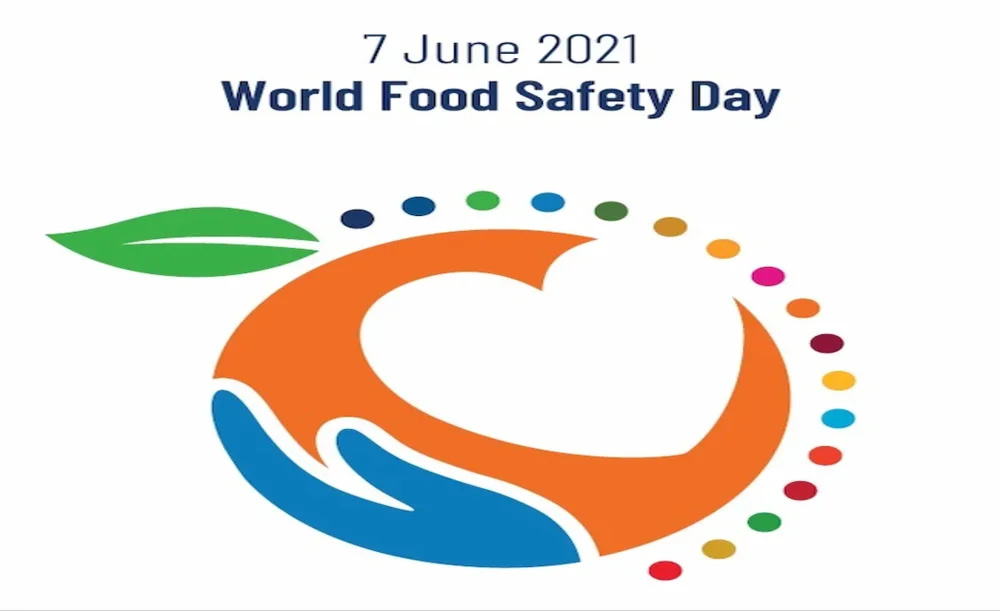
In the Caribbean, foodborne diseases (FBDs) are an increasing public health concern. FBDs are a major cause of morbidity, mortality, and economic burden of countries.
This is reflected by the increasing number of reported cases and outbreaks of gastroenteritis and food borne illness reported to CARPHA from its Member States.
Reducing FBDs would increase food safety, which will contribute to enhancing food security, a key sustainable development goal. Food safety is also a significant health security issue since FBDs can rapidly spread across borders with travel and trade.
FBD not only affects the health of the Caribbean population, but that of its visitors and can have significant economic, social, and reputational impact on trade and tourism.
A Caribbean burden of Illness study among a subset of CARPHA Member States (not including Haiti) estimated that yearly, about 1 in 49 persons in the Caribbean (approximately 142,000 persons) will acquire a foodborne illness due to possible consumption of a contaminated food or drink.
This proportion increases to 1 in 11 persons during mass gathering events for which the multi-cultural Caribbean is well noted.
These include “limes”, carnival, cricket, food fairs or festivals and holiday celebrations. Moreover, over 40% of the cases are children 1-4 years of age. The estimated economic cost of gastroenteritis (the major symptoms of foodborne illness) was USD$21M/year, indicating the huge health and economic burden that gastroenteritis and foodborne diseases pose to the Caribbean.
Pathogens commonly transmitted to humans through contaminated food and water include Salmonella, Campylobacter, Shigella, Staphylococcus aureus, Escherichia coli 0157, Listeria, Norovirus and Giardia.

Most FBDs are zoonoses, which are infectious diseases transmissible under natural conditions between animals and humans, hence their source is often at the farm level. Toxins and chemicals in food and water also contribute to food borne illness.
Food standards are a way of ensuring safety and quality and provide guidance on hygienic food handling.
“Food Standards Save Lives” is the theme for World Food Safety Day 2023. When food safety standards are applied consumers will be protected by the efforts that have been undertaken in making sure that the food they consume is safer.
World Food Safety Day which is observed annually on 7th June, aims to raise awareness about the importance of safe food practices and to highlight the global need for safe food.
Another factor that can influence food safety is climate change which causes long-term changes in weather patterns.
Climate change can affect the abundance and transmission of food and water borne pathogens, particularly following disaster related events such as storms and extreme flooding.
Over time, the international scientific community is building evidence on the links between climate change and food safety, but the risks for the Caribbean and the ability of the Region to respond to climate driven food related outbreaks have not been fully assessed.
Dr. Joy St. John, Executive Director at the Caribbean Public Health Agency (CARPHA) states, “the Small Island Developing States of the Caribbean are particularly vulnerable to the effects of climate change on food safety and food security.
The Region must come together using a focused, multisectoral approach to mitigate the impacts of climate change.”
CARPHA is currently working under the Pan American Health Organization (PAHO) coordinated EU/CARIFORUM Strengthening Climate Resilient Health Systems in the Caribbean project, to jointly roll out climate integrated food safety initiatives in the Caribbean.
Under the project a series of videos have been produced including Climate risks and food safety. A joint agency webinar was recently held on “Food Safety and Climate Change”. The event underscored the effects climate change is having on food safety and the need for strengthening food safety surveillance in the Region.
Climate adaptation and mitigation measures were discussed within the Caribbean context, highlighting key topics such as seafood safety.
More recently Barbados and Trinidad and Tobago have been selected as pilot countries for the development and implementation of climate resilient national food and water safety plans by mid-2024.
Most foodborne illnesses are preventable, and interventions in food preparation, production and processing, and even storage can help prevent food from getting contaminated with bacteria.
To adequately address FBD and food safety in the Caribbean, CARPHA is implementing an integrated foodborne diseases program, integrating the epidemiological, laboratory, environmental and veterinary aspects of FBD surveillance and response into a coordinated programmatic approach, regionally and nationally.
Its components of surveillance, training, capacity building, outbreak investigation and research, preparation and control are addressing FBD in a wholistic manner to promote food safety in the Region.
CARPHA has also trained and certified over 500 persons in 9 of its Member States in advanced food safety and has developed a suite of hospitality, health, food safety and environmental standards, to provide a basis for the development of an effective food safety program for the hospitality industry.
The standards address all aspects of food safety including hygiene, protective wear, clean kitchen facilities and utensils, contaminated food, waste disposal and storage, response to emergencies, training of staff and monitoring to ensure food safety is kept up to code.
Food safety is a shared responsibility, involving the entire supply chain, from the producers to consumers.
CARPHA puts out a wide call to the public and private sector. “Whether you grow, process, transport, store, distribute, sell, prepare, serve or consume food, you have a role to play in keeping it safe”.
CLICK HERE TO JOIN OUR WHATSAPP GROUP
CLICK HERE TO JOIN OUR WHATSAPP GROUP
CLICK HERE TO JOIN OUR WHATSAPP GROUP
CLICK HERE TO JOIN OUR WHATSAPP GROUP
CLICK HERE TO JOIN OUR WHATSAPP GROUP
CLICK HERE TO JOIN OUR WHATSAPP GROUP
Advertise with the mоѕt vіѕіtеd nеwѕ ѕіtе іn Antigua!
We offer fully customizable and flexible digital marketing packages.
Contact us at [email protected]
















